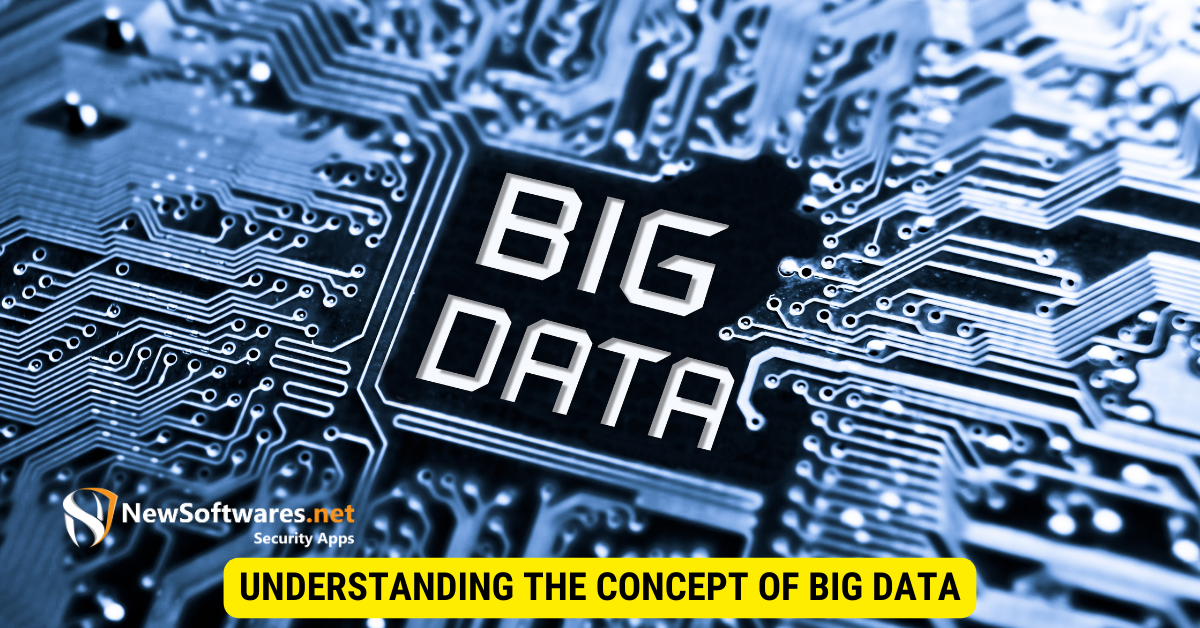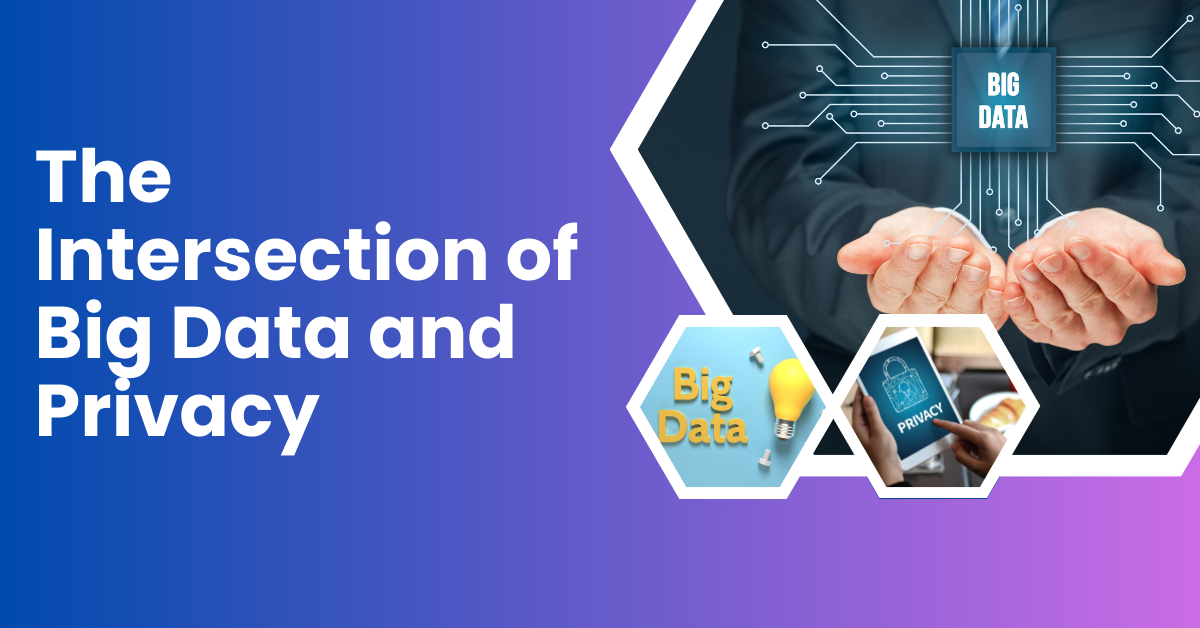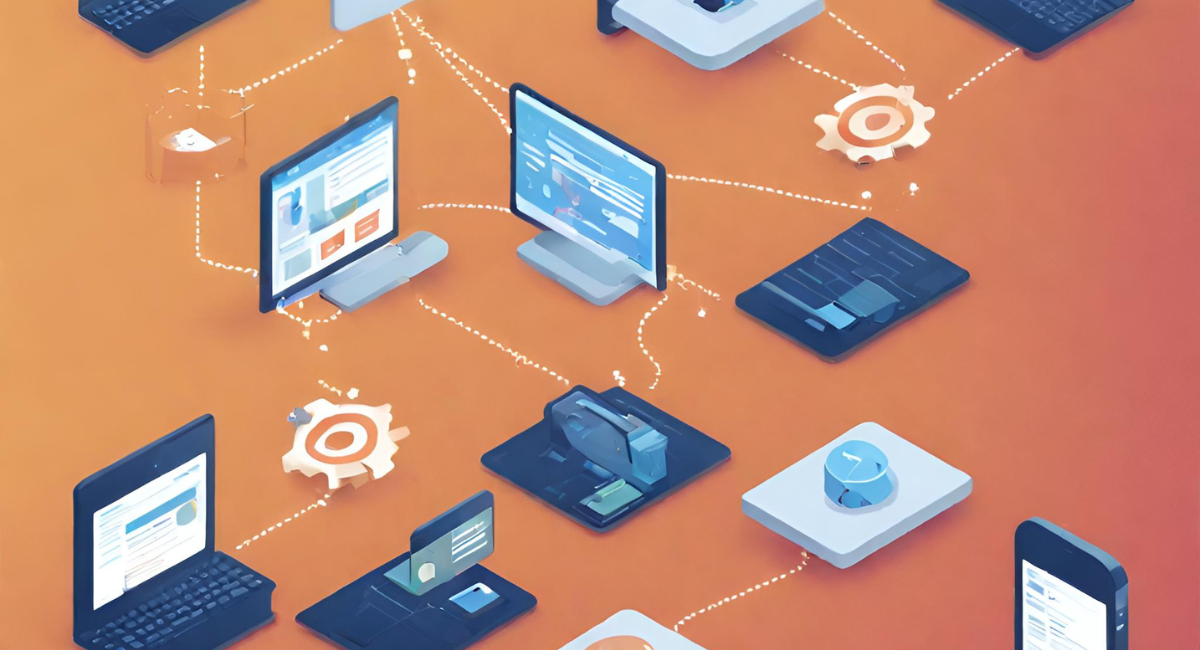Big data can be seen as an invasion of privacy if not handled ethically and transparently.
In today’s technology-driven world, the exponential growth of data has paved the way for numerous advancements. Big Data, in particular, has become a buzzword often associated with potential benefits and significant privacy concerns. Understanding the concept of Big Data is vital in unraveling its impact on our privacy and determining whether it is truly an invasion.
Understanding the Concept of Big Data

Big Data refers to the vast amount of designed, semi-structured, and unstructured data produced from many bases such as social media, online transactions, sensors, and more. Its defining characteristic lies in the three V’s – Volume, Velocity, and Variety. Big Data encompasses massive amounts of data generated at a high speed in diverse formats.
When we talk about Volume, we refer to the sheer magnitude of data produced every second. To put it into perspective, it is assessed that 2.5 quintillion bytes of data are created every day. This includes everything from text messages and emails to photos and videos uploaded on social media platforms.
Velocity, on the other hand, refers to the speed at which data is being generated. With the advent of real-time data streaming, information is being produced and consumed at an unprecedented rate. This has led to the need for faster and more efficient data processing and analysis techniques.
Lastly, Variety refers to the diverse range of data formats that are being generated. In the past, data was primarily structured and stored in traditional databases. However, with the rise of social media, IoT devices, and other sources, data is now available in many formats, such as text, images, audio, and video. This poses a challenge in terms of data integration and analysis.
The Evolution of Big Data
Big Data has significantly evolved over the years. Traditionally, data collection was primarily manual. Organizations would rely on surveys, questionnaires, and other data collection methods to collect information. However, with technological advancements, data capture has become effortless and seamless.
Nowadays, we live in an era of information explosion, where data is generated at an unprecedented rate. The increasing accessibility of the internet and the proliferation of smart devices have played a significant role in this rapid growth. With more people connected to the internet and using smartphones, the amount of data generated has skyrocketed.
Furthermore, the rise of social media platforms has also contributed to the exponential growth of Big Data. Data is created whenever someone posts a status update, likes a photo, or shares an article. This data can be examined to gain insights into consumer behavior, preferences, and trends.
The Role of Big Data in Today’s World
Big Data has emerged as a powerful tool driving innovation and decision-making processes across various sectors. It enables businesses, governments, and organizations to extract valuable insights, recognize patterns, and predict future trends.
With Big Data analytics, companies can enhance customer experiences by personalizing their offerings based on individual preferences and behavior. For example, e-commerce platforms can recommend products to customers based on browsing and purchasing history. This not only improves customer satisfaction but also increases sales and revenue.
In addition to improving customer experiences, Big Data analytics can optimize operations and increase overall efficiency. For instance, logistics companies can use real-time data to track and manage their fleet, ensuring timely deliveries and reducing costs. Similarly, healthcare organizations can analyze patient data to identify patterns and trends, leading to better diagnosis and treatment.
Nevertheless, with great power comes great responsibility, and this is where the intersection of Big Data and privacy becomes crucial. As more data is being collected and analyzed, concerns about data privacy and security have also grown. Organizations need to implement robust data protection measures and comply with privacy rules to confirm the trust and confidence of their customers.
The Intersection of Big Data and Privacy

The intersection of big data and privacy is a complex and multilayered issue that has garnered significant attention in recent years. As the collection and analysis of data continue to evolve, it is crucial to understand the various aspects of this intersection, including how big data collects information, the types of data collected, and the use of personal data in big data analytics.
How Big Data Collects Information?

Big data collects information through diverse techniques, enabling organizations to gather vast amounts of data from various sources. These sources include, but are not limited to, cookies, web tracking, social media monitoring, surveillance cameras, and even public records. Using these techniques allows for collecting data both with and without the explicit consent of individuals.
For instance, cookies are small files websites store on a user’s computer to track their browsing behavior. This enables companies to gather information about a user’s preferences, interests, and online activities. Similarly, web tracking technologies like pixel tags and web beacons allow organizations to monitor user interactions and gather data about their behavior and preferences.
Social media monitoring is another method employed by big data to collect information. Organizations can gain insights into individuals’ opinions, preferences, and social connections by analyzing social media posts, comments, and interactions. This information can tailor marketing movements, improve customer experiences, and target specific demographics.
Surveillance cameras, both public and private, also contribute to data collection by capturing visual information about individuals’ movements and activities. This data can be used for various purposes, such as improving public safety, monitoring traffic, or tracking individuals’ behavior patterns.
Furthermore, big data can also tap into public records, such as government databases, to gather information about individuals. This includes data related to property ownership, criminal records, and other publicly available information. While this data is often obtained legally, concerns arise regarding the extent of data collection and the potential for misuse.
The Types of Data Collected
The types of data collected by big data are wide and encompass a wide range of information. At a basic level, big data gathers demographic information such as age, gender, and location. This data provides valuable insights into purchaser behavior and helps organizations target specific demographics with their products and services.
However, big data goes beyond basic demographic information and delves into more sensitive and personal data. This includes browsing history, purchasing habits, and even health records. The vastness and level of detail in the data collected make it possible to create comprehensive profiles of individuals, which raises concerns about privacy infringement.
For example, browsing history data can reveal an individual’s interests, preferences, and online activities. This information can personalize advertisements, recommend products, or influence decision-making processes. Similarly, purchasing habits data can provide insights into consumer behavior and enable organizations to tailor their marketing strategies accordingly.
Health records, another type of personal data collected by big data, can be particularly sensitive. Analyzing health-related data can help improve medical research, develop personalized treatments, and enhance healthcare services. However, using such data raises ethical and privacy concerns, as individuals may worry about the security and confidentiality of their health information.
The Use of Personal Data in Big Data Analytics
Big data analytics involves the processing and analysis of immense datasets to extract valuable insights and patterns. While these analyses aim to improve services and products, using personal data raises concerns about privacy and data protection.
Individuals may question how their personal information is utilized, who has access to it, and whether they have any control over its usage or retention. The potential for mismanagement or unauthorized access to personal data is a significant concern, as it can lead to identity theft, scams, or other privacy breaches.
Furthermore, using personal data in big data analytics raises questions about the transparency and accountability of organizations. Individuals may desire more transparency regarding how their data is used and shared. They may also want to have the ability to opt out or have more control over their data, ensuring that their privacy rights are respected.
Addressing these concerns requires carefully balancing the benefits of big data analytics and protecting individuals’ privacy. Stricter regulations and policies, increased transparency, and enhanced data protection measures can be taken to ensure that the intersection of big data and privacy is managed ethically and responsibly.
The Legal Aspects of Big Data and Privacy
Current Laws and Regulations
Several laws and regulations aim to address the intersection of Big Data and privacy. These include the General Data Protection Regulation (GDPR) in the European Union, the California Consumer Privacy Act (CCPA), and data protection laws in various countries. These regulations emphasize the importance of obtaining informed consent, providing transparency, and protecting the rights of individuals regarding their data.
The Grey Areas in Big Data Legislation
Despite regulations, the rapidly evolving nature of technology poses challenges in terms of legal enforcement and keeping policies up-to-date. The intricate web of data flows makes pinpointing specific individuals or entities responsible for potential privacy breaches difficult. The dynamic and constantly changing landscape of Big Data presents a challenge for lawmakers to keep pace with emerging trends and adequately safeguard individual privacy.
The Role of Consent in Data Collection
Consent plays a critical role in the collection of personal data. However, the complexities of Big Data make obtaining genuine, informed consent a significant challenge. Often, individuals are not fully aware of the extent or implications of data collection when they consent. Moreover, obtaining consent may be buried within lengthy terms and conditions, leading to a lack of true transparency.
The Ethical Implications of Big Data
Balancing Benefits and Privacy Concerns
The ethical implications of Big Data revolve around striking a balance between its potential benefits and the privacy concerns it raises. On one hand, Big Data has the power to revolutionize sectors such as healthcare, transportation, and finance, leading to improved services and efficiencies. On the other hand, the vast amount of personal information collected and shared can infringe upon privacy rights.
The Potential for Misuse of Data
Another important ethical concern is the potential for the misuse of Big Data. With access to comprehensive profiles of individuals, there is a risk of discrimination, manipulation, and abuse. Inaccurate or biased algorithms used in Big Data analytics can lead to unfair practices, such as pricing discrimination or denial of opportunities based on sensitive attributes.
Ethical Guidelines for Big Data Usage
The development of guidelines and frameworks is paramount to address the ethical implications of Big Data. Clear guidelines can provide organizations and individuals with a set of principles to follow, ensuring responsible data usage and respect for privacy. Ethical considerations should involve transparency, accountability, fairness, and the ability for individuals to retain control over their data.
As the world becomes increasingly consistent and reliant on technology, the debate surrounding the invasion of privacy by Big Data remains complex. Understanding the underlying concepts, legal aspects, and ethical implications is essential in determining the balance between the benefits of Big Data and the preservation of individual privacy. By striving for transparency, accountability, and responsible data usage, we can navigate the era of Big Data while safeguarding personal privacy rights.
Key Takeaways
- Big data’s capability to profile and track individuals is concerning.
- Lack of transparency in data collection and use.
- Potential misuse by corporations or governments.
- While big data offers many advantages, it requires robust privacy safeguards.
- Individuals often don’t have full control over their data within big data systems.
FAQs
Why might big data be seen as invasive?
It can collect, analyze, and use vast amounts of personal data without consent.
Can big data be used ethically?
Yes, with transparency, consent, and proper safeguards.
How does big data collect information about me?
Through various sources like online browsing, transactions, social media, sensors, and more.
Can I control what big data knows about me?
To an extent, through privacy settings, cautious sharing, and understanding data policies.
Are there benefits to big data?
Yes, including advancements in technology, medicine, business insights, and societal trends understanding.
Conclusion
Big Data, in the modern technological landscape, offers a wealth of opportunities in sectors like healthcare, finance, and transportation. The ability to collect and analyze vast amounts of data can lead to improved services, products, and efficiencies. However, this growth and utilization come with significant challenges, most notably regarding privacy. Big data systems’ collection, processing, and use of personal data have raised valid concerns about transparency, consent, misuse, and individuals’ control over their information. Existing laws like the GDPR and CCPA aim to address these concerns, but the rapidly advancing nature of technology can outpace regulations, leading to potential grey areas. Ethical considerations must be at the forefront of big data strategies to balance the undeniable benefits with the imperative of respecting and protecting individual privacy. As the world delves deeper into the age of Big Data, it becomes crucial to navigate its advantages while ensuring robust safeguards for personal privacy rights.
